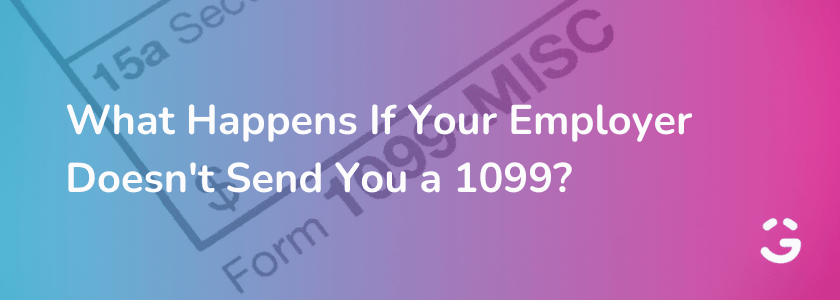October 26, 2023
What Happens If Your Employer Doesn't Send You a 1099?

If you've been working as an independent contractor or freelancer, you're probably familiar with Form 1099 — an essential document for tax reporting. What happens if an employer does not send you a 1099?
In this blog, we'll explore the basics of the form, why you might not receive one, and what to do if your employer never sends it. We'll also discuss scenarios where an employer intentionally withholds this crucial document and provide tips to avoid common pitfalls.
Let’s begin!